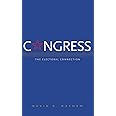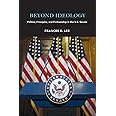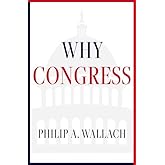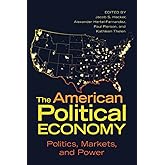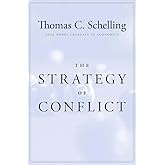
Enjoy fast, free delivery, exclusive deals, and award-winning movies & TV shows with Prime
Try Prime
and start saving today with fast, free delivery
Amazon Prime includes:
Fast, FREE Delivery is available to Prime members. To join, select "Try Amazon Prime and start saving today with Fast, FREE Delivery" below the Add to Cart button.
Amazon Prime members enjoy:- Cardmembers earn 5% Back at Amazon.com with a Prime Credit Card.
- Unlimited Free Two-Day Delivery
- Streaming of thousands of movies and TV shows with limited ads on Prime Video.
- A Kindle book to borrow for free each month - with no due dates
- Listen to over 2 million songs and hundreds of playlists
- Unlimited photo storage with anywhere access
Important: Your credit card will NOT be charged when you start your free trial or if you cancel during the trial period. If you're happy with Amazon Prime, do nothing. At the end of the free trial, your membership will automatically upgrade to a monthly membership.
Buy new:
-22% $25.82$25.82
Ships from: Amazon Sold by: Kuleli Books
Save with Used - Good
$8.00$8.00
Ships from: Amazon Sold by: WÖLF

Download the free Kindle app and start reading Kindle books instantly on your smartphone, tablet, or computer - no Kindle device required.
Read instantly on your browser with Kindle for Web.
Using your mobile phone camera - scan the code below and download the Kindle app.

Follow the author
OK
The Logic of Congressional Action Paperback – July 29, 1992
Purchase options and add-ons
- Print length293 pages
- LanguageEnglish
- PublisherYale University Press
- Publication dateJuly 29, 1992
- Dimensions9.2 x 6.14 x 0.94 inches
- ISBN-100300056591
- ISBN-13978-0300056594
Book recommendations, author interviews, editors' picks, and more. Read it now.
Frequently bought together

Frequently purchased items with fast delivery
Editorial Reviews
Review
"[Arnold] makes an excellent argument by drawing on several literatures and by chronicling events in the areas of economic, tax, and energy policy over the past several decades. . . . An excellent, comprehensive book on Congress."―Choice
"This reviewer has no hesitation asserting that The Logic of Congressional Action is one of the most important books on Congress published in the past decade and that it will be widely read and discussed in the decade ahead. Every serious student of Congress will become familiar with Arnold's argument and the book will be assigned in most every course on Congress. . . . A tour de force."―Thomas E. Mann, Congress & the Presidency
"An imaginative, insightful addition to congressional scholarship."―Daniel J. Reagan, Review of Politics
"This excellent and highly accessible book will become essential reading for those who wish to understand how Congress makes decisions. . . . It explicitly refutes those doomsayers who see congressional support for special interests and policy particularism as inevitable. . . . An outstanding book."―John E. Owens, American Politics Review
"An outstanding piece of work. This is the most important book of its kind since Mayhew's Congress: The Electoral Connection was published fifteen years ago. Arnold's work generates an abundance of fresh insights into legislative politics and expands and enriches our understanding of how the 'electoral connection' works. The book fills a serious gap in the theoretical literature on Congress, and it does so clearly, elegantly, and persuasively. It will immediately achieve the status of a book that every serious student of Congress and of public policy has to know."—Gary C. Jacobson, author of Money in Congressional Elections and coauthor of Strategy and Choice in Congressional Elections
"This will be one of the most influential books on Congress―and hence, on American politics―for the next ten years. It is a very sophisticated book by someone who understands politics and who has original, important things to say about the relationship between politicians and citizens."―Richard F. Fenno, Jr.
"No student of Congress can ignore this work. In the genre of rational-actor analysis, it presents the most interesting and textured account to date of congressional policy making."―David Mayhew
Product details
- Publisher : Yale University Press; Reprint edition (July 29, 1992)
- Language : English
- Paperback : 293 pages
- ISBN-10 : 0300056591
- ISBN-13 : 978-0300056594
- Item Weight : 1.05 pounds
- Dimensions : 9.2 x 6.14 x 0.94 inches
- Best Sellers Rank: #1,411,408 in Books (See Top 100 in Books)
- #1,828 in United States National Government
- #7,960 in Political Science (Books)
- Customer Reviews:
About the author

R. Douglas Arnold is the William Church Osborn Professor of Public Affairs, Emeritus, in Princeton University's Department of Politics and in its School of Public and International Affairs. He is the author of books on Congress, policymaking, and Social Security.
Customer reviews
Customer Reviews, including Product Star Ratings help customers to learn more about the product and decide whether it is the right product for them.
To calculate the overall star rating and percentage breakdown by star, we don’t use a simple average. Instead, our system considers things like how recent a review is and if the reviewer bought the item on Amazon. It also analyzed reviews to verify trustworthiness.
Learn more how customers reviews work on AmazonReviews with images
I ordered this book and instead received a book called ...
Top reviews from the United States
There was a problem filtering reviews. Please reload the page.
- Reviewed in the United States on June 30, 2015Simply the best book on Congress ever written. Arnold's conclusions stand up just as well today in 2018 as they did when he wrote them in 1990. Like many other scholars of the time, Arnold found that special interests were the overwhelming beneficiaries of congressional transparency. He wrote:
"Two decades later, after the advent of sunshine laws, we know better. Open markup sessions often give organized interests a powerful advantage over inattentive citizens, for they can monitor exactly who is doing what to benefit and to hurt them."
It is chilling how few people have understood this work. Yet some of this is perhaps because of Arnold's language. Instead of 'special interests' or 'lobbyists' he uses the term 'attentive publics'. Instead of 'transparency' he uses 'traceability.' Odd terminology like this can really disguise an important message.
One last quote for those interested in why tax bills favor the wealthy (yup it is transparency again):
"The switch from the quiet back-room deals of the Ways and Means Committee to the more open procedures of the Finance Committee and the Senate floor shows how tax preferences thrive in the sunshine. It is relatively easy for legislators to turn down proposals for expanding tax preferences, or even to approve contractions, if their actions are hidden from public view. It is considerably more difficult to do so if legislators must vote publicly, either in committee or on the floor, to deny their constituents a share of group benefits. As Congress began in the 1970s to write tax bills more openly, legislators faced an increasing number of roll-call votes on tax preferences. In fact, during this one decade there were more than twice as many roll-call votes in favor of creating or modifying tax preferences as there had been in the six previous decades. As legislators voted publicly on these matters, they quite naturally voted to approve expanded tax preferences."
He mentions gun control and numerous other problems in the same light. Arnold leaves his strongest point for the last page of his book.
"Legislators have discovered the strengths and weaknesses of specific procedures by trial and error. Open meetings, open rules, unlimited recorded votes seemed like good ideas when they were proposed, and they were backed by Common Cause and others who sought to reduce the power of special interests. Unfortunately, these reforms were based on a faulty understanding of the mechanisms that allow for citizens’ control. We now know that open meetings filled with lobbyists, and recorded votes on scores of particularistic amendments, serve to increase the power of special interests, not diminish them."
One would think that this should be on the first page and then he'd explore the reasons and context for this. Oh well. It is still a great book
- Reviewed in the United States on February 24, 1999According to John G. Geer, a textbook account of a representative democracy is that representatives attempt to translate the public's view into governmental action. Legislators are supposed to represent and act on the interests of the electorate. Gere cites Edmund Burke's distinction between `trustee' democracy, in which politicians lead public opinion, and `delegate' democracy, in which politicians follow the public's will. Jean-Jacaques Rousseau believed that, ''the deputies of the people are not representatives; they are merely its agents". He expressed extreme cynicism regarding the British system of representation: "The English people believes itself to be free. It is greatly mistaken; it is free only during the election of the members of parliament, Once they are elected, the populace is enslaved; it is nothing." To the extent that Arnold's theory of Congressional behavior suggests that it is more necessary for legislators to identify issues that could make them vulnerable to challengers and to find the safe margin of decision making than for them to strictly adhere to the constituency opinion in roll-call voting, the US representative system seems to fall under `trustee' democracy, and is antidemocratic in the Rousseauian sense.
- Reviewed in the United States on July 30, 2016I ordered this book and instead received a book called "The Little Seagull Handbook" that had a Logic of Congressional Action sticker on the back.
 1.0 out of 5 starsI ordered this book and instead received a book called "The Little Seagull Handbook" that had a Logic of Congressional Action sticker on the back.
1.0 out of 5 starsI ordered this book and instead received a book called "The Little Seagull Handbook" that had a Logic of Congressional Action sticker on the back.I ordered this book and instead received a book called ...
Reviewed in the United States on July 30, 2016
Images in this review
- Reviewed in the United States on August 27, 2009I would not recommend this book to anyone based on the writing style or conclusions drawn (I disagree with the author on many points). However, there is a lot of research that goes into this book, and it has some value because of that.









